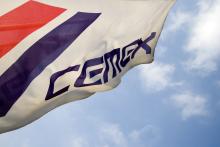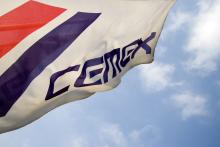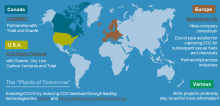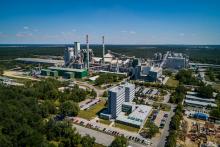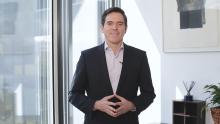
The initial stage of the project aims to capture 100 tonnes per day of CO2 at the plant and combine this with hydrogen from renewable sources to produce greener synthetic hydrocarbons that can be used in other industries.
The aim will then be to increase the CO2 capture by an additional 300 tonnes per day, and use hydrogen supplied by a dedicated pipeline. Both project stages have already been submitted for national and European funding and will be operating by 2026. CEMEX and Carbon Capture say the receiving of funding is crucial for the implementation of the innovation projects.
Finally, a study will be completed to investigate how to scale up to 2,000 tonnes per day of CO2.
Sergio Menendez, president of CEMEX Europe, Middle East, Africa & Asia, commented: “This project with Carbon Clean is the latest development in CEMEX’s plan to achieve carbon neutrality at the Rüdersdorf cement plant by 2030, through our pioneering carbon neutral alliance with expert industrial consortiums. Carbon capture will play a fundamental role in the efforts to succeed at this goal and ensure our operations are more sustainable.”
The two companies say their objective is to demonstrate the potential of significantly reducing CO2 capture costs and establishing technology to support this.
Last year, CEMEX carried out a feasibility study with Carbon Clean to demonstrate the reduction in CO2 capture cost from the cement plant flue gas with an initial capacity of 100 tonnes per day.
Aniruddha Sharma, co-founder & CEO of Carbon Clean, said: “We are looking forward to delivering this breakthrough project with CEMEX further strengthening our relationship and helping to decarbonise the cement industry.
“With many industrial plants having limited space, the biggest barriers to widespread CCUS adoption have been the size and cost of existing technology."
He added that Carbon Clean is breaking down these barriers with the world’s smallest industrial carbon capture solution.
"CycloneCC is the next generation of technology that will make carbon capture simple, affordable, and scalable – bringing it within reach of a huge number of industrial emitters, especially those with small to mid-size emission point sources,” Sharma said.
CEMEX has committed to reduce its global operations CO2 emissions by 35% by 2025 and 40% by 2030, with its European operations being the first to align to the EU’s aspiration to reduce CO2 emissions by 55% by 2030 as part of its ‘Future In Action’ strategy – committed to net zero CO2.


